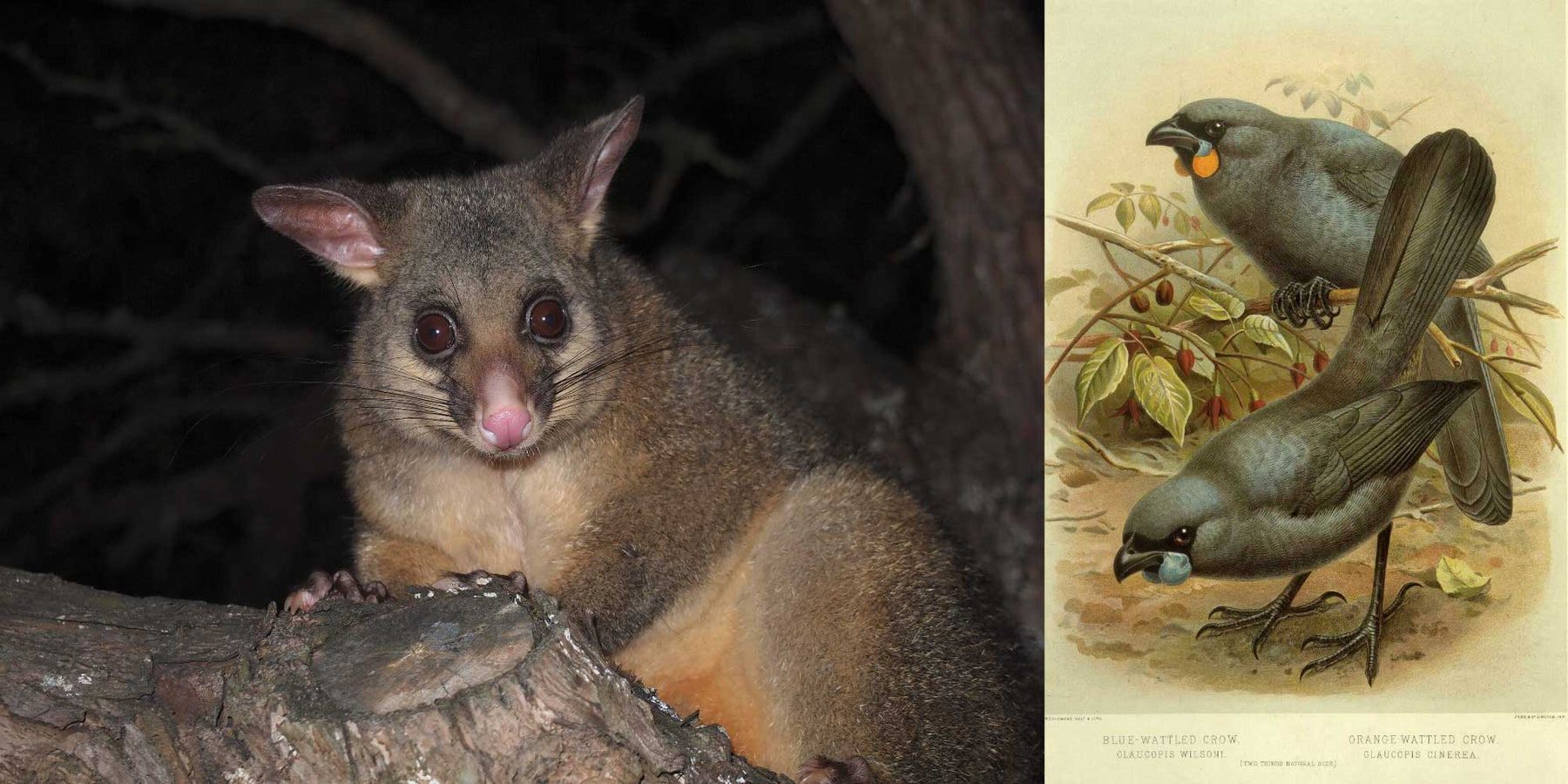+64 9 522 1050
NZ: +64 9 522 1050
AUS: 1300 001 259

Brushtail Possums, Rats, and stoats are some of the most damaging major introduced predators in the New Zealand bush. These furry killers have a huge impact on our native bush on many levels.
By investing in a possum fur product from Gorgeous Creatures, you are contributing to the survival and regeneration of the unique native New Zealand forest, birds, and insect species, many of whom are now threatened by extinction.
Because of its long isolation from the rest of the world, New Zealand has extraordinary & unique flora and fauna. About 80% of New Zealand's native flora is endemic, meaning that it is found only in New Zealand.
Before humans arrived, New Zealand has been described as a 'country without teeth'. The only mammal that is native to New Zealand is a small native bat. So before people came to New Zealand it was ruled by birds, insects, and reptiles.
Many of our New Zealand native birds have evolved to become flightless, leaving them vulnerable to introduced predators. The possum has no natural predators in New Zealand to keep their numbers down naturally like they do in their native Australia. Unchecked possums continue to breed, and numbers are escalating out of control every year.
Some New Zealand native broad-leaf tree species are absolute delicacies for possums, and these same species are also some of the country's most endangered.
Possums will seek out their favourite food ahead of other species, completely stripping entire trees bare of leaves, so that the trees die. This leads to competition for food with native forest birds, changes in forest composition, and eventually causes forest canopy collapse.
It was recently discovered that the supposedly vegetarian possum also eats NZ native birds' eggs, baby chicks, and native insects.
So, as well as destroying our native birds' habitat and food sources, they prey on eggs and chicks of native New Zealand bird species like the Tui, Kereru, and the endangered Kokako.
The predation of bird eggs and chicks has led them to be referred to as "reluctant folivores", meaning that they eat foliage to survive but prefer a mix of other foods in their diet.

This beautiful watercolour shows three rare endangered Kokako in a native bush setting: the North Island Kokako or blue-wattle crow; the South Island Kokako or orange-wattle crow and the albino Kokako.
Main image credit:- Keulemans, John Gerrard, 1842-1912. Keulemans, John Gerrard, 1842-1912 :Kokako. [Between 1899 and 1906?]. Ref: D-033-004. Alexander Turnbull Library, Wellington, New Zealand. /records/23177724
It is estimated that there are approximately 30-40 million possums in New Zealand, and they devour nearly 8 million tonnes of vegetation annually.
The New Zealand Department of Conservation and National Possum Control Agencies are trying to keep possum numbers under control by declaring possums a pest and encouraging their eradication.
Most possums in National Parks are killed by the New Zealand Government using poison and are left in the bush to rot, and this natural resource is wasted. The New Zealand Government spends over 100 million dollars a year on possum control.
Possums are known carriers of bovine tuberculosis, which poses a major threat to the New Zealand dairy, beef, and deer farming industries.
Over the last five years, possum control programs have been the main driver of a 60% reduction in TB levels in New Zealand's cattle and deer herds.
Header image credit:- Keulemans, John Gerrard, 1842-1912. Keulemans, John Gerrard 1842-1912 :Blue-wattled crow, Glaucopis wilsoni. Orange-wattled crow, Glaucopis cinerea. (Two-thirds natural size). / J. G. Keulemans delt. & lith. [Plate I. 1888].. Buller, Walter Lawry (Sir) 1838-1906 :A history of the birds of New Zealand. 2d ed. London, John van Voorst, 1888.. Ref: PUBL-0012-01. Alexander Turnbull Library, Wellington, New Zealand. /records/22889745
Visit Gorgeous Creatures while in the Hawkes Bay
8 Otatara Rd, Taradale, Napier 4112 (by appointment please call or text first)
Kirsty Mason Ph 027 222 6230
showroom@gorgeouscreatures.co.nz
Facebook page